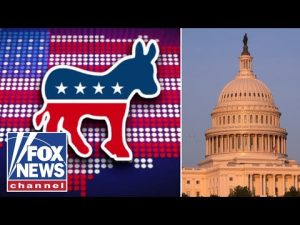In an era where political winds blow from all directions, the latest report on America’s economic performance seems to break through with a gust of confidence. The U.S. economy grew at a robust three percent rate in the second quarter, signaling a triumphant melody of investment and opportunity. It seems like Christmas came early, with the promise of trillions in manufacturing investments. Yes, you read that right—somewhere between 12 and 15 trillion dollars set to inject life into the industrial veins of the nation over the next four years. Whether those numbers slipped by the media or they simply underestimated the administration’s magic, it’s a record that echoes loudly, if one could hear it over the din of skeptics.
Amidst this economic hurrah, many recall the largest tax cuts in history, which seemed to breathe new life into businesses and let taxpayers enjoy a little more green in their pockets. With the top tax rate slated to plummet and revenues doubled, even those who normally clutch their pearls at the thought of lower taxes might find themselves grudgingly cheering. And speaking of energy, the U.S. appears to be opening the floodgates, occupying a space never before marked by such resource freedom. A staggering $750 billion in committed energy purchases from the E.U. seems like a sure sign of where the globe turns when it’s time to fill the tank.
The interest rates? Well, those rates that were predicted to skyrocket have instead taken a more leisurely stroll, reflecting an economy that seems to have its sails full. With GDP growth hovering at a healthy three percent and projections heading to four percent, the employment scene invigorated by the construction of factories, Donald Trump’s policies appear to be carving out a legacy of their own. Those factories not only symbolize a rise in production but also pen a love letter to job seekers nationwide.
First budget surplus in June in two decades, folks. That’s right. The United States experienced its first whiff of surplus, like a cool breeze on a hot day, signaling sound fiscal management. It’s a stark contrast against the backdrop of dependency, with America now mining its rare earth, manufacturing U.S.-born semiconductors, and reclaiming its stronghold on automobile and pharmaceutical industries. It’s almost as if one could hear the strategic gears turning, shifting the nation back onto tracks laid by homegrown ambition and global influence.
Leading this charge is the U.S. consumer, touted as the world’s greatest buyer. It seems that the consumer has been given a crash course in assertiveness, guided to the sandbox by policies that unclog international trade pathways. Through purchasing power and demand, the consumer is shaping global interactions and redefining markets. As Trump’s economic strategy paints a portrait of growth and resilience, one might wonder if there’s a paintbrush left for the pessimists to use. In an economy powered by revived industries and empowered buyers, maybe, just maybe, there’s plenty of opportunity for everyone to take a seat at the table.







